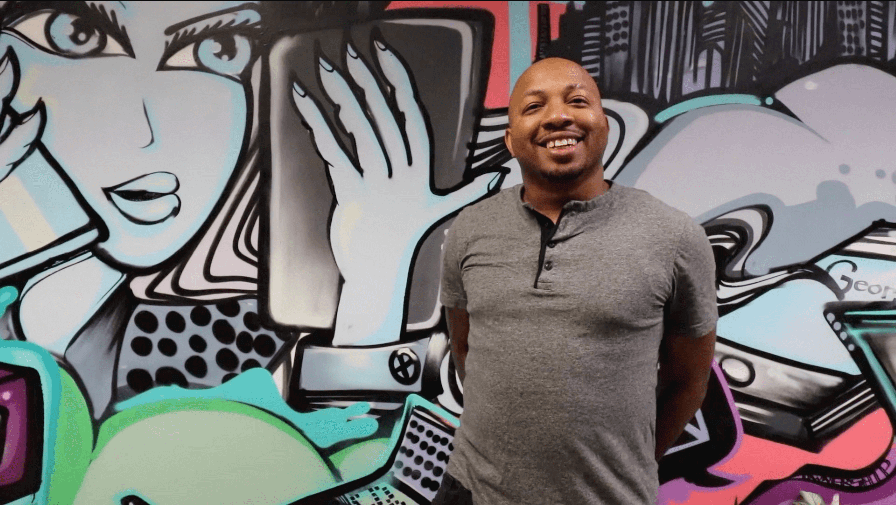A record 12,200 brick-and-mortar stores closed in 2020 due to lockdowns and the subsequent shift to online shopping. Consumer behaviors rapidly changed, employees migrated out of the industry (either by choice or by force), and retailers accelerated the release of digital-first technologies, rolling out solutions in months rather than years. While some retailers have flourished, others are simply trying to keep up.
Now that the brunt of the crisis has passed, retailers must face the future of work. According to the consulting firm Deloitte, this requires retailers to reimagine:
- The workplace (the “where”)
- The work itself (the “what”)
- The workforce (the “who”)
Retailers easily solved the “where” and the “what,” but the “who” is becoming a critical issue. A recent survey from McKinsey & Company revealed that at least half of frontline retail workers are considering quitting. To combat this, retailers need to discover what drives employee loyalty (hint: it’s not a paycheck) and explore how technology fits into the overall employee experience.
Rethinking Recruitment Tactics
The Labor Department’s September 2022 Job Openings and Labor Turnover Survey shows that approximately 758,000 retail workers either quit or were laid off — and there are an estimated 795,000 open retail positions. There are several reasons that account for the large number of open positions, including childcare concerns and a desire to work from home. In addition, retail jobs, especially those on the frontline, tend to pay less compared to other fields.
Most retailers respond to staffing issues by hiring candidates on the spot, incentivizing candidates with signing bonuses and increased hourly wages. However, attracting and retaining today’s workers requires a different approach. According to Deloitte, “To win in today’s hypercompetitive talent market, it’s important for employers to understand worker values, needs, and desires and deliver experiences that move the needle on retention in the short-term and differentiate the worker-employer relationship in the long-term.”
A report from Gartner revealed that 52 percent of employees question the “why” of their day-to-day jobs. This information should serve as a cue for retailers to build employer-employee relationships that center around a shared purpose. The purpose-driven business model isn’t new, but it is effective in recruiting and retaining staff, especially younger employees who expect to work for companies that embrace a mission or practice corporate social responsibility.
Investing in emerging technology and embracing its many functionalities is a key part of the retail evolution. The storefront may look different, and how the product is delivered may change, but the need to connect remains universal. Unified communications as a service (UCaaS) solutions offer several benefits for retailers, including enhancing communications between employees (thereby increasing employee satisfaction and serving as an attractive selling point during the hiring process) and enabling hiring managers to move easily through the recruiting process.
The functionality of a UCaaS solution such as Broadvoice b-hive allows for a range of communications channels — voice, text, and video — on one unified platform. Add in a contact center functionality with integrations for customer relationship management (CRM) software, and retailers empower their employees to interact with customers more effectively while staying connected as a business team.
Investing in Employee Experiences
As a result of the pandemic, nearly every sector has learned to do more with less: retailers have operated with fewer employees, navigated supply chain woes, and answered customers’ demands for personalized, real-time service. With challenge comes opportunity, making now a great time to embrace a genuine people-centric philosophy. During a time when talent is hard to come by, putting people first makes sense.
Customer expectations for rapid, personalized service have increased in this digital-first era. While customers appreciate the convenience of a contact-free shopping experience, they also want options for real-time human interactions. Beyond pricing and the product itself, most customers say their experience with a brand is the reason they stay (or leave), and interactions with employees are a key part of that experience.
Unfortunately, retail employees are under increasing pressure that negatively impacts customer interactions. In some cases, frontline workers may be pulling double duty because of staffing issues or expanded workloads. In fact, many employees are facing increasing numbers of in-store customers while also handling curbside deliveries, buy-online pickup in-store (BOPIS) orders, and online transactions.
In this period of do-more-with-less, employees need more control, more skills, and more efficient ways to navigate customer communications. A recent Forbes article claims that 62 percent of CEOs believe upskilling, or training employees on new technologies or processes, is critical for businesses. It not only helps keep the company current, but it’s also a great way to recruit new talent while retaining existing employees.
Facilitating this kind of work culture requires a modern communications solution that combines all communications on one platform for a seamless user experience. Broadvoice b-hive enables employees to text, chat, video call, and use voice services to reach coworkers or sister stores using one business number from any internet-enabled device — even their personal mobile phone. Employees can choose their preferred channel for communicating and collaborating with coworkers and customers for faster, more efficient results. Best of all, they don’t have to switch applications, saving time and consolidating all interactions on one platform.
A built-in call center with CRM software integration enables inbound record matching and screen pops with real-time account data to help streamline customer interactions, allow faster resolutions, and improve customer satisfaction. Happier customers mean happier employees.
People-Centric Models Require the Right Tools
The retail industry is meant to be transactional, but it’s essential to ensure that it’s also relational. Prioritizing people and providing them with the proper tools for text, voice, collaboration, and customer management solutions is a great selling point for recruiting and retaining a top-rated team.
Register for our Hybrid Workforce webinar to learn more about how Broadvoice can help your business implement a hybrid work model.










